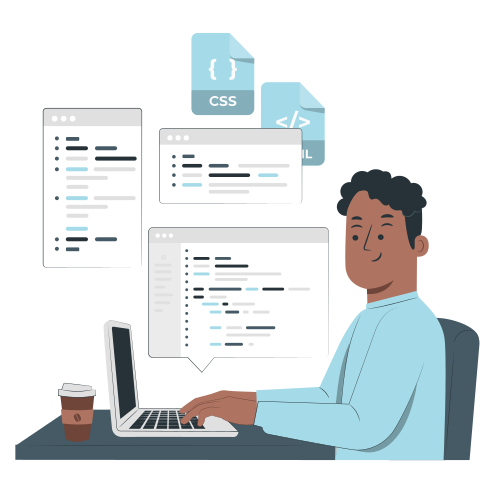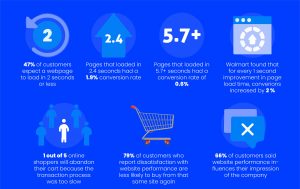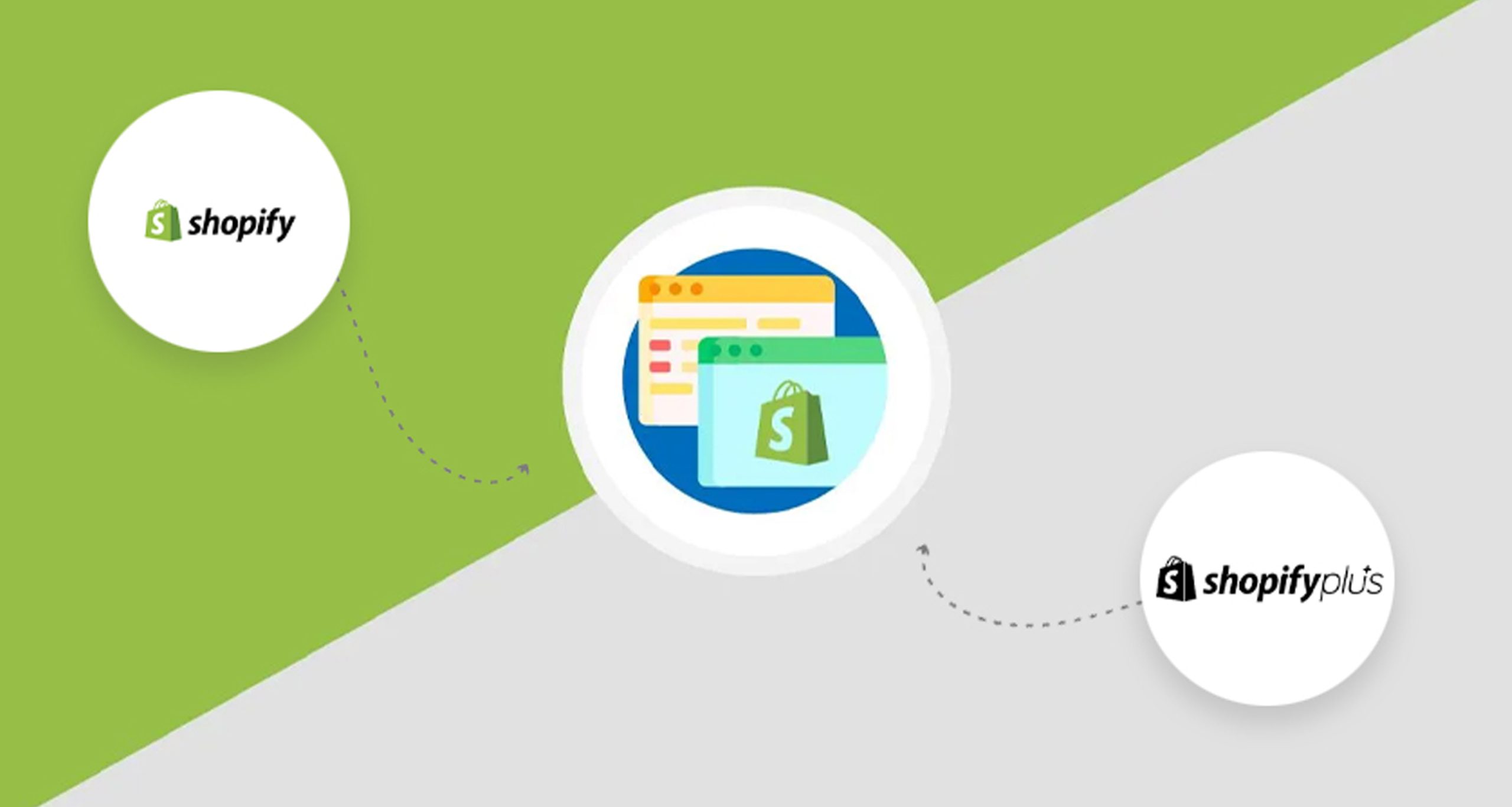Shopify is a globally trusted platform for launching online stores. Many big and small businesses use it to successfully run their eCommerce outlets.
Read MoreCan a single factor like website speed make a major impact or difference in conversions? Yes! Even more, than you’d have expected.
If website visitors do not find the content or products they are looking for, that too quickly! They tend to abandon your website for one of your competitors. Wondering why?
Well, according to Andy Crestodina, an eCommerce analyst, there’s a pretty simple answer:
“Web pages don’t have loading bars. So, when the page is slow, the visitor doesn’t know if the delay will be another 500 milliseconds or 15 seconds. Maybe it will never load. And the back button is right there.”
Business owners must take this aspect seriously, as losing customers to the competition should not be part of their marketing strategy.
Unfortunately, most marketers aren’t hitting speeds that put them in Google’s good books. Since they’re slow, they’re likely paying more than they need to for their search ads — and disappearing from organic search results.
The main problem marketers face with loading time is that most of them couldn’t realise the importance of improving page speed by a few milliseconds: it’s just not tangible enough. Consequently, most of them often overlook page loading time in their priorities because they want to focus on more “tangible” improvements such as design, link building, on-page SEO, social media, and paid ads.

And that’s a mistake. We aren’t saying one shouldn’t pay attention to these, but data from industry giants and experts have shown that page loading time directly affects conversions, page views, organic rankings and revenues.
To help you sort it out and quantify the impact of page loading time, we have researched some additional insights that should help you better understand the stakes involved in improving page speed.
Impact of slow website speed on your sales and conversions
Put yourself in the shoes of your customer, and you will automatically realise that ‘People Hate Waiting’. They get even more impatient when it comes to website speed.
Why? Take a look at this Financial Times case study:
“The speed of the site negatively impacts a user’s session depth, no matter how small the delay…The data suggests, both in terms of user experience and financial impact, that there are clear and highly valued benefits in making the site even faster.
From this research, we’ve chosen to invest even more time in making every aspect of the new FT.com website even faster over the coming months.”
We added a 5-second delay to each page load time, and this is what we discovered:
●The first-second delay resulted in a 4.9% drop in the number of articles a visitor read.
●The three-second delay resulted in a 7.9% drop.
●The ultimate five-second delay couldn’t even manage to keep visitors on the web page.
This depicts that web page load time impacts user engagement with content and, ultimately, your business sales.
For a clearer vision, let’s take a look at some factual figures –

Google keeps reminding us that website speed is one of the prime factors in its search algorithm used to rank websites.
A slow website is bound to hamper your SEO rankings since Google and other search engines place penalties on websites with poor user experience.
In addition to this, search engines have an allocated crawl budget, so if your website loads slowly, only a few pages can be crawled by search engines.
For every eCommerce store owner, search engine rankings play a vital role in overall success. Page load speed directly affects the organic traffic, which, in turn, affects business sales and conversions.
Thus, optimising your webpage load time should be one of your prime goals. Search engines promote websites that have a good user experience. The speed of your website is one aspect that highly affects user experience.
All your SEO efforts will be a waste if your website loads too slow. Let us support our statements with some significant facts and numbers:
“Make sure web pages load fast for your users. I aim for less than 2-3 secs”- John Mueller (Webmaster Trends Analyst, Google).

Many digital marketers know the load time they should target! But are they getting there? Some believe 2-3 seconds is an acceptable load time, which they verified from Google’s search engine recommendation pointers.
Rand Fishkin, a leader in the field of search engine optimisation tools, says, “Speed is a “crucial component for so much of what creates a great experience that converts visitors to buyers.”
There are multiple strong reasons to speed up your website:
How much load you are putting on your web server, how many plugins you have integrated, how much animation does your custom theme process in a single refresh – Numerous factors like these affect your website loading speed, which, fortunately, can be optimised.
Below are some quick tricks our expert web developers have shared. If you follow them, you will undoubtedly notice a speed overhaul: –
1) Conduct a speed audit. Run your pages through Google’s Page Speed Insights to see how they stack up. You will also gain more insights into your website’s core web vitals.
2) Optimise media on your website. Use smaller file types, like SVG, whenever possible. The lighter the media, the faster they load.
3) Remove unnecessary plugins, add-ons, and scripts. Analyse and keep only essential features.
4) Analytics and ads could be asynchronously loaded so that their loading times would not impact their analysis.
5) Enable browser caching to eliminate or reduce the chance of re-downloading a file that your visitors have already downloaded.
6) Use a Content Delivery Network (CDN) to send files from global servers closest to your visitors.
7) Enable Gzip compression for your pages. Keep your files as small as possible by shrinking fatter files.
8) Minify your JavaScript and CSS. Clean your code by removing the unnecessary lines of code.
In 2022 it’s compulsory to keep your website optimised. Not just in terms of speed but also holistic performance, user experience, and other aspects.
So, before you feel overwhelmed by all the technical terms we’ve discussed above, make sure you have a call with experts.
Being a certified PrestaShop developers‘ agency, we understand the confusion you are facing. Thus, we offer free expert consultations to improve your website speed and user experience for higher sales, ROI, and search engine rankings.
If you’re genuinely interested in keeping up with the trends and improving your current website speed and condition, let our certified professionals help you.

If you want a free audit of your Prestashop project click here

Shopify is a globally trusted platform for launching online stores. Many big and small businesses use it to successfully run their eCommerce outlets.
Read More